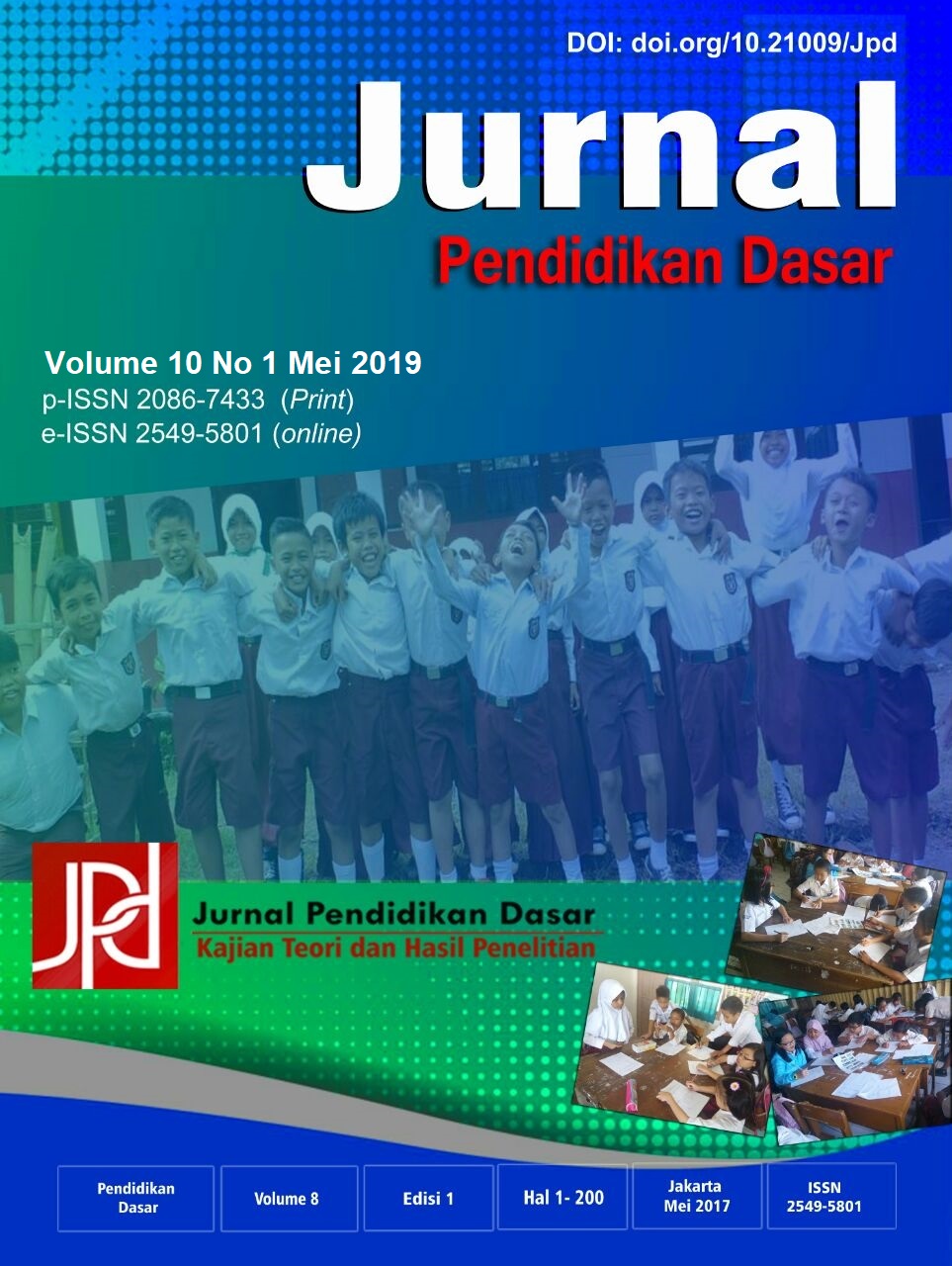MODEL PEMBELAJARAN ROUND CLUB DAN MODEL PEMBELAJARAN JIGSAW TERHADAP HASIL BELAJAR PPKN PESERTA DIDIK SEKOLAH DASAR
DOI:
https://doi.org/10.21009/jpd.v10i1.9607Keywords:
Model pembelajaran, Round Club, Jigsaw, hasil belajar PPKn.Abstract
The purpose of this study is to find the difference between Round Club Learning Model with Jigsaw Learning Model in PPKn study session. The study was held in State Elementary School Kapuk 14 Pagi West Jakarta on its second semester of the 2016-2017 academic year. The research population of 54 students were all observed using the saturation sampling technique. The research used Round Club Learning Model in Experiment Class 1 and Jigsaw Learning Model in Experiment Class II. The round Club Learning Model was designed for a group work where students in groups help each other constructing the concept to conclude a problem.While Jigsaw Learning Model pushes students to actively help each other in gaining comprehension to achieve maximum result. The analysis result reveals, from data significance test, a result of tcount= 2,83 > 2,009 = ttable with significance level = 0,05 In accordance to the research criterion of H0 rejected H1 accepted, with student achievement average from Experiment Class 1 (V-A) 85,46 and Experiment Class II (V-B) 77,67 it could be concluded that there is a difference in PPKn results from students with Round Club Learning Model compared to students with the Jigsaw Learning Method.
References
Jihad, Asep. Dkk. 2012. Evaluasi Pembelajaran. Yogyakarta: Multi Pressindo.
Kurniawan. Benny. 2012. Pendidikan Kewarganegaraan Untuk Mahasiswa. Tenggerang: Jelajah Nusa.
Lie, Anita. 2014.Cooperative Learning (Memperaktikan Cooperative Learning di Ruang-Ruang Kelas). Jakarta: PT. Grasindo.
M. A. Sardiman. 2014. Interaksi dan Motivasi Belajar-Mengajar. Jakarta: PT. Raja Grafindo Persada.
Nasution. S. 2011. Berbagai Pendekatan Dalam Proses Belajar dan Mengajar. Jakarta.
Purwonto. 2009. Evaluasi Hasil Belajar. Yogyakarta: Pustaka Belajar.
Rusman. 2011. Model-Model Pembelajaran. Jakarta: PT Rajagrasindo Persada.
Siregar, Eveline dan Hartini Nara. 2010. Teori Belajar dan Pembelajaran. Bogor
.
Sugiyanto. 2009. Model-Model Pembelajaran Inovatif. Jakarta: Yuma Pustaka dan FKIP UNS.
Sugiyono. 2016. Metode Penelitian Kuantitatif, Kualitatif, dan R&D. Bandung; Alfabeta.
Susanto, Ahmad. 2015. Teori Belajar dan Pembelajaran di Sekolah Dasar. Jakarta: Prenadamedia Group.
Thobroni. M. 2015. Belajar dan Pembelajaran. Yogyakarta: Ar-Ruzz Media.
Tyas Dwi Utami. 2010. Panduan PAKEM PPKn SD. Jakarta: Esis.
Winataputra. S. Udin. 2014. Pembelajaran PPKn di SD. Tanggerang: Universitas Terbuka.
Downloads
Published
How to Cite
Issue
Section
License
Jurnal Pendidikan Dasar





















